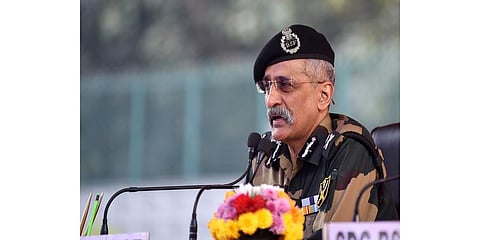

NEW DELHI: Pankaj Kumar Singh, a former Director General (DG) of the Border Security Force (BSF), has been appointed as India's Deputy National Security Advisor (Dy NSA) in the National Security Council Secretariat (NSCS).
According to an official order, Singh has been appointed on a re-employment contract for a period of two years which is to come into effect from the date he assumes the charge as Dy NSA, or until further orders.
After assuming the new role, Singh will assist NSA Ajit Doval in the creation, implementation and improvisation of India’s national security strategies, including assessing threats posed by terrorism, data breaches & theft, cyber threats, the readiness of concerned agencies and cooperation between major organisations dealing with security issues and affairs.
Pankaj Kumar Singh, a 1988-batch IPS officer of the Rajasthan cadre, had taken the charge as BSF DG on 31st August 2021, making him the first father-son duo along with his father Prakash Singh to hold the BSF's top job. Prakash Singh, a 1959-batch IPS officer, had headed BSF from June 1993 to January 1994.
Before moving to the BSF, Pankaj had served with the Central Reserve Police Force (CRPF) as Inspector General (Chhattisgarh) and IG (Operations) at CRPF HQ in Delhi.
In 1996, Pankaj Singh petitioned the Supreme Court to carry out reforms in the police establishment following which the government started giving a fixed tenure of two years at least to the chief of the Intelligence Bureau, the CBI, the foreign secretary, the RAW chief and the Union home secretary.
As part of the NSCS, he will be in the role of policy formulation.
In the security matrix of the country, all aspects of national security are deliberated upon by the National Security Council (NSC), a three-tier structure headed by the Prime Minister. The Ministers of Home Affairs, Defence, External Affairs and Finance are its members. The National Security Adviser is its Secretary.
The three-tier structure of the NSC comprises the Strategic Policy Group (SPG), the National Security Advisory Board (NSAB) and the National Security Council Secretariat. The SPG chaired by the Cabinet Secretary is the principal forum for inter-ministerial coordination and integration of the relevant inputs. The NSAB undertakes long-term analysis and provides perspectives on issues of national security.